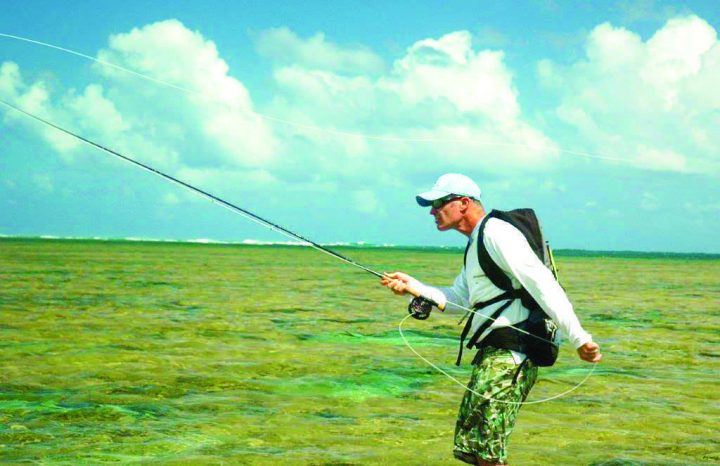
If you’ve got good gear that cost good money, chances are you practice some sort of maintenance. Reels get a lot of attention with cleaning and lubrication because they don’t work well when they aren’t clean. Another piece of gear that doesn’t work well when it’s not properly maintained is a fly line. More than just about anything else, dirty or cracked fly line will seriously impair your ability to cast for distance and accuracy.
Think about it. The performance of every cast hinges on the amount of friction between the fly line and the guides on the rod. Even a little bit of drag from dirt collected on the line or minuscule cracks in the lines’ coating will limit the cast. A new, slick, slippery fly line performs much better than one with even a little bit of age.
Before getting into what should be done to maintain the fly line, it’s important to lay out what you should not do with the fly line. Most fly lines are made with a PVC plastic coating, which contains chemicals to keep it from drying out and becoming brittle. There are numerous things that can damage this coating, and avoiding them will increase the life and performance of the line.
Ultra-violet rays and heat are two elements that will speed the aging process of a fly line. Obviously, you can’t avoid contact with the sun while fishing, but you should probably reconsider leaving your rod and reel in the vehicle. Sure, it’s great to be ready to go at a moment’s notice, but you’ll replace your line much more often, which gets expensive fast.
Now, it is wise to use sunscreen and insect repellant when you’re out on the water, but there are chemicals in these products that will degrade the coating of a fly line. Do the best you can to keep sunscreen, insect repellant and aerosols off your line, and you will increase its life.
As far as maintenance and what you can do to care for fly line, cleaning it and lubricating it will without a doubt help you cast better. Some people will blame poor casting on the rod or the caster when sometimes it’s old, dirty line that should get the blame.
Dirt from the bottom of the boat or the bank, where your line coils up before a cast is the main source of grime that will stick to the line causing friction. However, the dissolved matter that stains water also sticks to a line, as well as algae.
Fly line should be cleaned regularly, especially the portion that makes it off the reel regularly, with warm water and a mild soap. Spool it off into a bucket of warm soapy water and then wipe it down with a clean, soft cloth. Next, apply a fine coat of a quality fly line dressing with a cloth. This will protect and re-lubricate the line.
If the line is very dirty, it may be necessary to deep clean the line and remove the gunk that may be invisible to the eye but palpable. For this, there are fly line cleaning pads made with super-fine abrasives. They strip off this micro-grime without damaging the line.